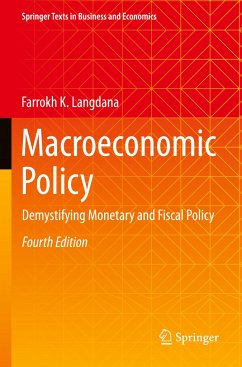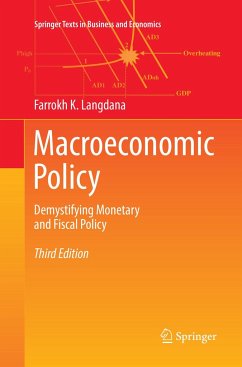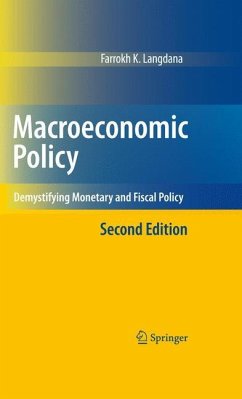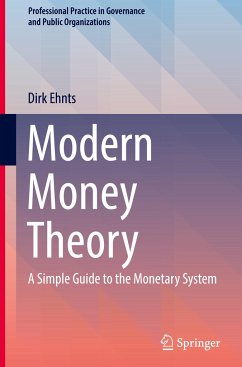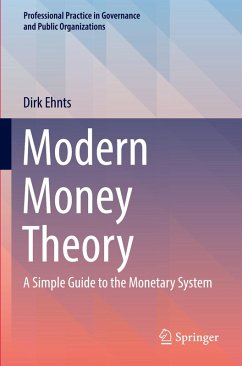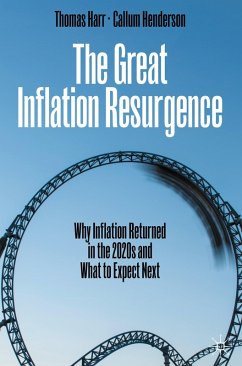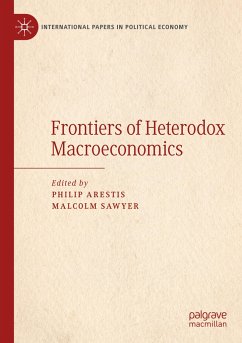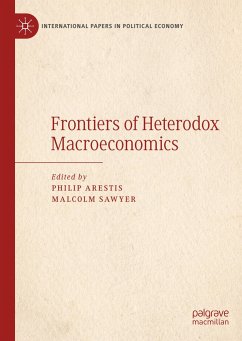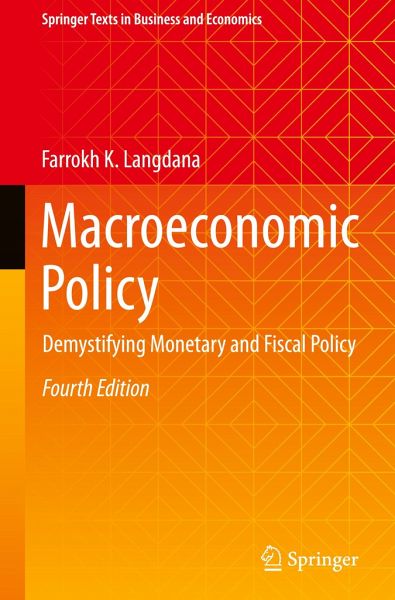
Macroeconomic Policy
Demystifying Monetary and Fiscal Policy
Versandkostenfrei!
Versandfertig in 6-10 Tagen
68,99 €
inkl. MwSt.
Weitere Ausgaben:

PAYBACK Punkte
34 °P sammeln!
This book is an applications-oriented text designed for individuals who desire a hands-on approach to analyzing the effects of fiscal and monetary policies. Significantly updated for the fourth edition, the text provides an understanding of the global economy in the wake of the COVID crisis, discussing topics such as pandemic related supply and demand-side shocks, the role of Modern Monetary Theory (MMT) in financing COVID rescue plans, the effect of the US, India, Eurozone and China's post-COVID economies on emerging and transitioning economies, and the resurgence of inflation. This edition i...
This book is an applications-oriented text designed for individuals who desire a hands-on approach to analyzing the effects of fiscal and monetary policies. Significantly updated for the fourth edition, the text provides an understanding of the global economy in the wake of the COVID crisis, discussing topics such as pandemic related supply and demand-side shocks, the role of Modern Monetary Theory (MMT) in financing COVID rescue plans, the effect of the US, India, Eurozone and China's post-COVID economies on emerging and transitioning economies, and the resurgence of inflation. This edition includes deeper coverage on the issue of budget deficit sustainability and on trade wars, especially in a global context, and revisits the life cycles of speculative asset price (SAP) bubbles, especially in the housing markets and in SPACs.
The fourth edition contains several brand-new cases and media articles that are carefully positioned to relate explicitly to theory, and to look aheadto and preempt global macro situations and polices in the years to come. MBA students and Executive MBA students who appreciate the importance of monetary and fiscal analysis will find this text to be right on target. Financial analysts and individual investors who need to strip away economic myths and jargon and systematically examine and understand the effects of macro policies on variables such as inflation, output, employment and interest rates, will also find the book extremely useful.
The fourth edition contains several brand-new cases and media articles that are carefully positioned to relate explicitly to theory, and to look aheadto and preempt global macro situations and polices in the years to come. MBA students and Executive MBA students who appreciate the importance of monetary and fiscal analysis will find this text to be right on target. Financial analysts and individual investors who need to strip away economic myths and jargon and systematically examine and understand the effects of macro policies on variables such as inflation, output, employment and interest rates, will also find the book extremely useful.





